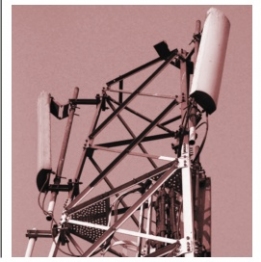
Capitalising on the opportunities in he telecom sector, as operators roll ut networks in new geographies and increasingly opt for sharing passive infrastructure, Quippo Telecom Infrastructure Limited (QTIL), an independent tower company formed in 2005, has witnessed strong growth over the past three to four years.
The company, like many others in the telecom arena, has seen a sharp rise in its valuations over the past few years. Since its merger with the Tata Group's WirelessTT Infoservices Limited (WTTIL) in January this year, the company has become the largest independent player in the telecom tower infrastructure space with a portfolio of 25,000 towers and an enterprise valuation of about $2.6 billion.
The company has leased out towers for the deployment of Unitech Wireless Limited's services and accounts for 40 per cent of Swan Telecom's tower requirements. It is also in discussion with STel and some of the other new operators.
QTIL faces stiff competition from operator-owned tower companies as well as deep-pocketed multinational players like American Tower Corporation (ATC) and Crown Castle International. For instance, Indus Towers Limited – a joint venture of Bharti Airtel, Vodafone Essar and Idea Cellular – is the largest telecom tower company in the country with nearly 100,000 towers. State-owned Bharat Sanchar Nigam Limited has 40,000 towers and has recently moved them into a separate subsidiary. Bharti Infratel and Reliance Infratel own 28,078 and 48,000 towers respectively. In fact, competing with operator-owned tower companies with assured captive occupancy will remain a key challenge for the company. Third-party tower companies are likely to have lower occupancies since they start from scratch. However, QTIL's merger with WTTIL will give it a leg up as far as this issue is concerned.
Stiff competition notwithstanding, the company has adopted a two-pronged strategy for tower rollout through both inorganic and organic growth. By rolling out over 300 towers a month, QTIL has set up about 5,000 towers in the Karnataka, Uttar Pradesh (West), Uttaranchal, Punjab, Himachal Pradesh and Gujarat circles.
In December 2007, the company increased its tower portfolio by buying out Spice Communications' towers in Punjab and Karnataka, along with the exclusive rights to roll out towers for Spice's future requirements. This acquisition has provided the company with an opportunity to set up over 12,000 towers in the next few years.
QTIL's merger with WTTIL in January 2009 was part of a consolidation trend in the tower industry. The deal, which valued each tower at Rs 6.2-Rs 7 million, entailed QTIL making a cash payment of Rs 23.67 billion for a 30 per cent stake and transferring 5,000 towers to the merged entity for another 19 per cent stake. The company now has a 49 per cent stake in the merged entity.
While the deal was signed in January, the acquisition was completed only in August. According to analysts, the acquisition was delayed due to funding constraints. However, dispelling rumours of financial constraints, Hemant Kanoria, chairman and managing director of Srei Infrastructure Finance Limited, Quippo's parent company, said that legal clearances required to complete the merger took some time.
For the cash portion of the deal, about Rs 9 billion was funded by issuing fresh equity to the existing shareholders and selling shares in the secondary market, while the remaining amount (Rs 15 billion) came from mezzanine capital and debt. QTIL's main shareholders – IDFC Private Equity (11.24 per cent), Oman Investment Fund (OIF) (16.6 per cent) and Srei Infrastructure Finance (55 per cent) – subscribed to the additional shares. Of the Rs 9 billion, IDFC Private Equity subscribed to shares worth Rs 2.5 billion and the balance was invested by OIF and Srei Infrastructure Finance. The company is now looking to raise Rs 1.4 billion by selling 15-20 per cent stake in the merged entity to retire the debt QTIL accrued to finance the merger. It is currently exploring options with private equity players like Carlyle and Apax Partners.
Future plans
Targeting a portfolio of over 50,000 towers by 2012, the company has chalked out an impressive game plan for the future. Widening the scope of its services, the company is exploring opportunities in the active infrastructure sharing space. While active infrastructure has been cleared by the government, operators have been reluctant to test these waters. QTIL intends to make a foray into this space and has committed significant investments in the coming fiscal year.
Moreover, continuing with its strategy of inorganic growth, the company has recently submitted its bid for Aircel's tower business, valued at $1.8-$2 billion, and is competing against industry stalwarts like Bharti Infratel and ATC. According to Arun Kapur, managing director and group president, QTIL, the Aircel tower business is a strategic fit for its business given the consistent demand and highest rollout at this time in the telecom space.
With Rs 90 billion of investments envisaged over the next two years, the company may also consider listing by the end of 2009-10 or early 2010-11, in order to raise $250-$500 million. Armed with such a huge war chest, the company is clearly well placed to take on competition and maintain its growth momentum.